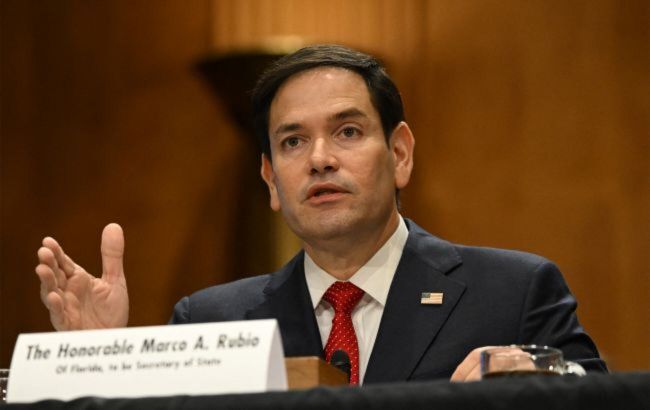'They have to walk away' - US sets tough conditions for Iran on nuclear deal
 Photo: US Secretary of State Marco Rubio (Getty Images)
Photo: US Secretary of State Marco Rubio (Getty Images)
Iran asserts its right to a nuclear cycle, while the US demands full capitulation in the negotiations, according to Reuters.
US Secretary of State Marco Rubio stated that Iran must stop uranium enrichment and the development of long-range missiles, as well as allow American inspectors to visit nuclear facilities.
According to the head of US diplomacy, key conditions for reaching an agreement include Iran's complete cessation of support for terrorist organizations, including the Houthis in Yemen, the dismantling of its missile program, and the suspension of any uranium enrichment on its territory.
He also mentioned that Iran should import the nuclear fuel required for peaceful energy purposes rather than producing it domestically.
"If you have the ability to enrich at 3.67% it only takes a few weeks to get to 20%, then 60%, and then the 80 and 90% that you need for a weapon," he said.
He stressed that the future inspection regime must include participation from US experts and allow access to all Iranian facilities, including military ones.
Stiff uncompromising stance
In response, Iranian Foreign Minister Abbas Araghchi stated that the country would not relinquish its legitimate rights under the Nuclear Non-Proliferation Treaty (NPT). According to him, as one of the founding countries of the NPT, Iran has the right to a full nuclear fuel production cycle.
"Repeating falsehoods will not change basic facts. As a founding signatory to the NPT (Non-Proliferation Treaty), Iran has every right to possess the full nuclear fuel cycle," Araghchi noted.
He emphasized that achieving a stable and long-term agreement remains possible with the political will and a fair approach from the United States.
US-Iran nuclear agreement talks
After taking office, US President Donald Trump ramped up efforts to reach a new nuclear agreement with Iran.
In early March, he sent a letter to Iran’s Supreme Leader, Ayatollah Ali Khamenei, with a proposal for a new deal. Should Iran refuse, Trump threatened massive strikes on the country's nuclear facilities.
Initially, Khamenei rejected negotiations, stating that he had no intention of negotiating with "arrogant countries," but later agreed to talks with Washington.
At the end of April, the US and Iran held "serious and productive" negotiations in Oman.
Before the meeting, Araghchi proposed a so-called interim deal to the US, but the American side did not support this option.
According to the Iranian official, the fourth round of talks scheduled for Saturday, May 3, in Rome was postponed. The new meeting date will depend on the US's position.
Meanwhile, Washington continues to pressure Tehran. On Thursday, US President Donald Trump stated that all purchases of Iranian oil or petrochemical products must cease. Any country or company that violates these requirements will face secondary sanctions.

